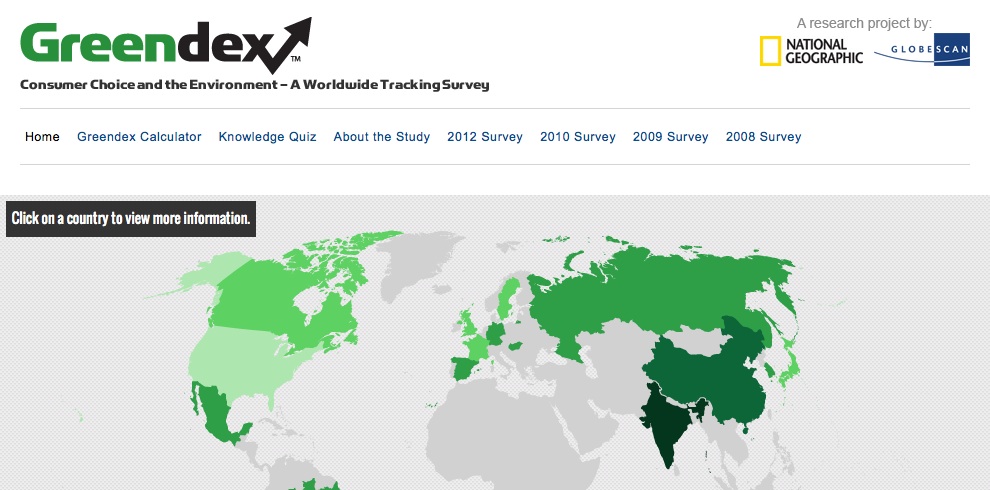The latest Greendex survey conducted by the National Geographic Society and Globescan has found that although more people are eating local and organic foods most believe they lack enough information and influence to become more environmentally sustainable consumers.
The survey looked at the food consumption habits and attitudes in 18 countries each of which was scored on the relative size of its environmental footprint.
The report, the fifth since 2008, found noticeable improvements in eating habits – with more than half of consumers surveyed frequently eating locally-grown food – but when it came to housing, transportation and consumer goods, environmentally sustainable behaviour was the same or worse.
43% of consumers believe they have little influence over how their food is produced with just 34% saying they know enough about the quality, origin and safety of their food.
Eric Whan of Globescan commented: “Consumers feel somewhat alienated from the food system. They don’t feel particularly empowered to affect how food is produced.”
When told that certain foods weren’t as harmful to the environment as others, respondents in all countries said they would eat more grains and beans and buy more natural or locally produced food in future. They also said they would cut down on their meat consumption, and consume less bottled water and packaged foods.
Consumers in most English-speaking countries as well as in Sweden were the least interested in how food is produced.
Most consumers globally rejected the idea that eating meat is bad for the environment and those who said they planned to eat less meat in future were driven by health or price more than environmental issues.
British, German, Australian, American and Canadian consumers showed little interest in trying to reduce their environmental footprints by changing their consumption habits even though theirs were among the biggest.











